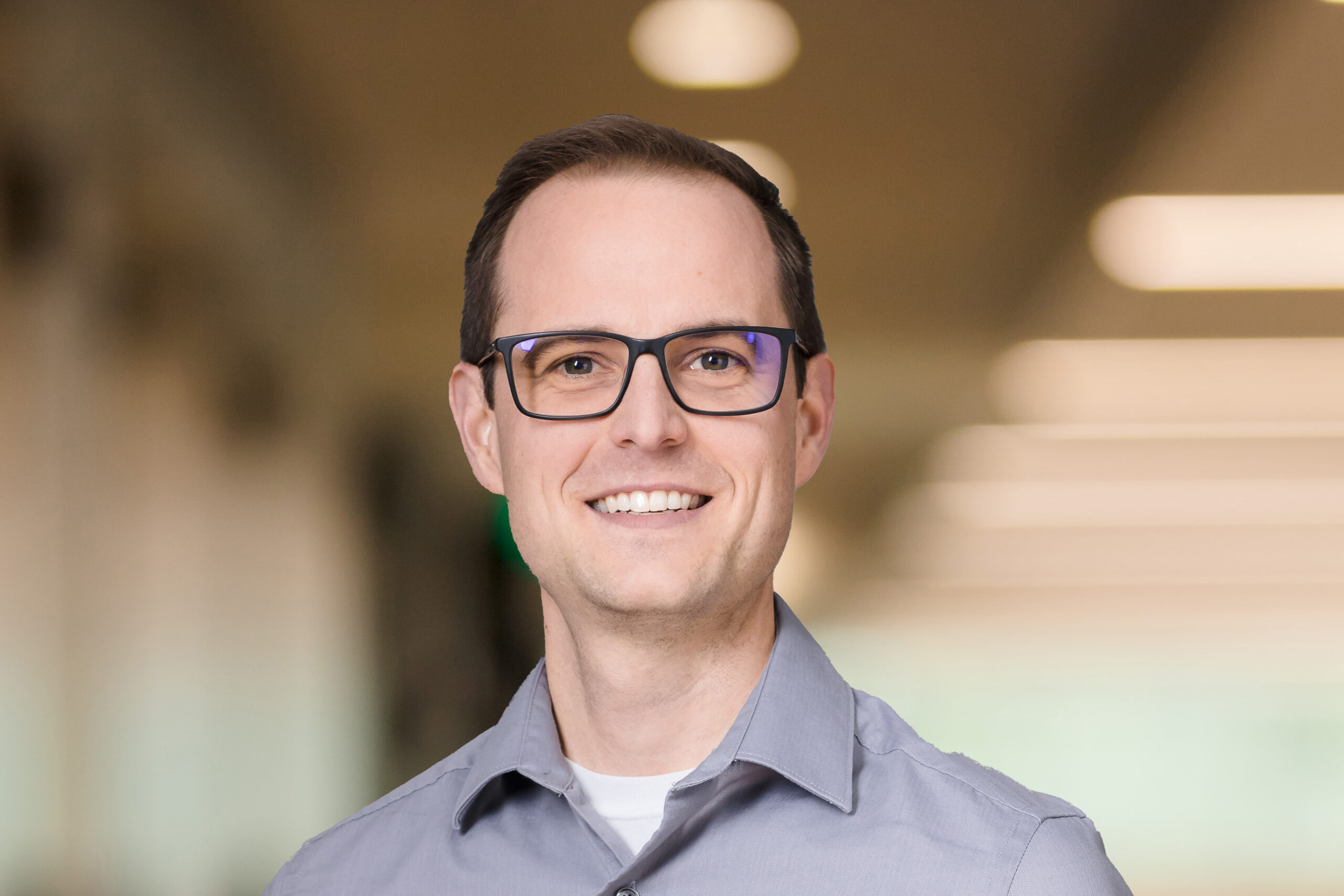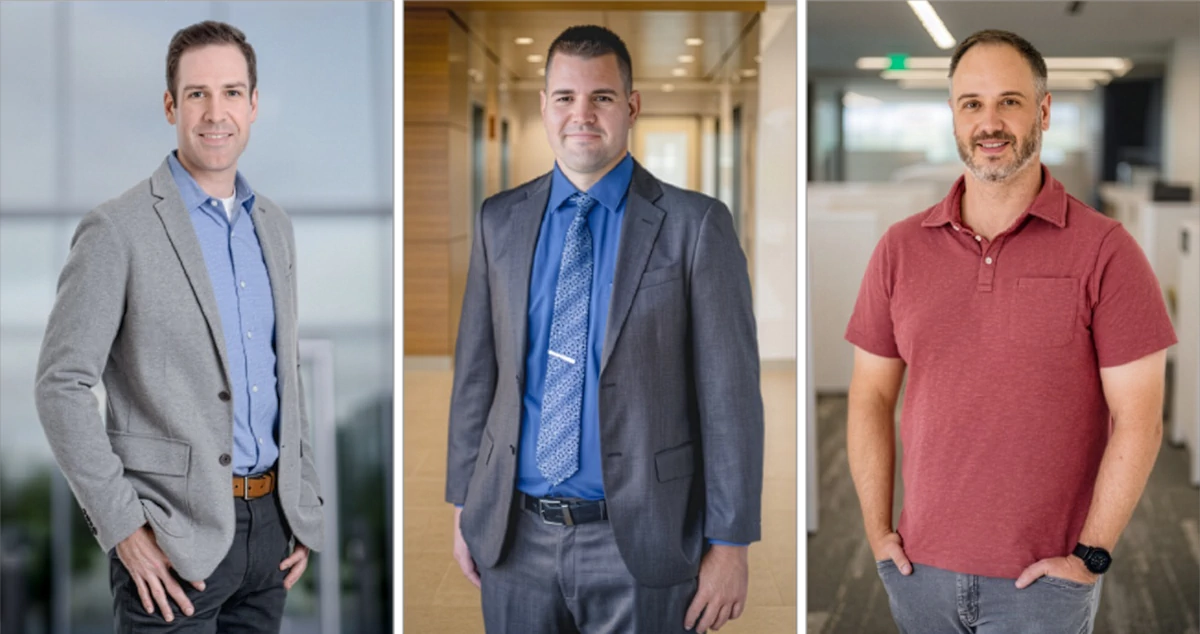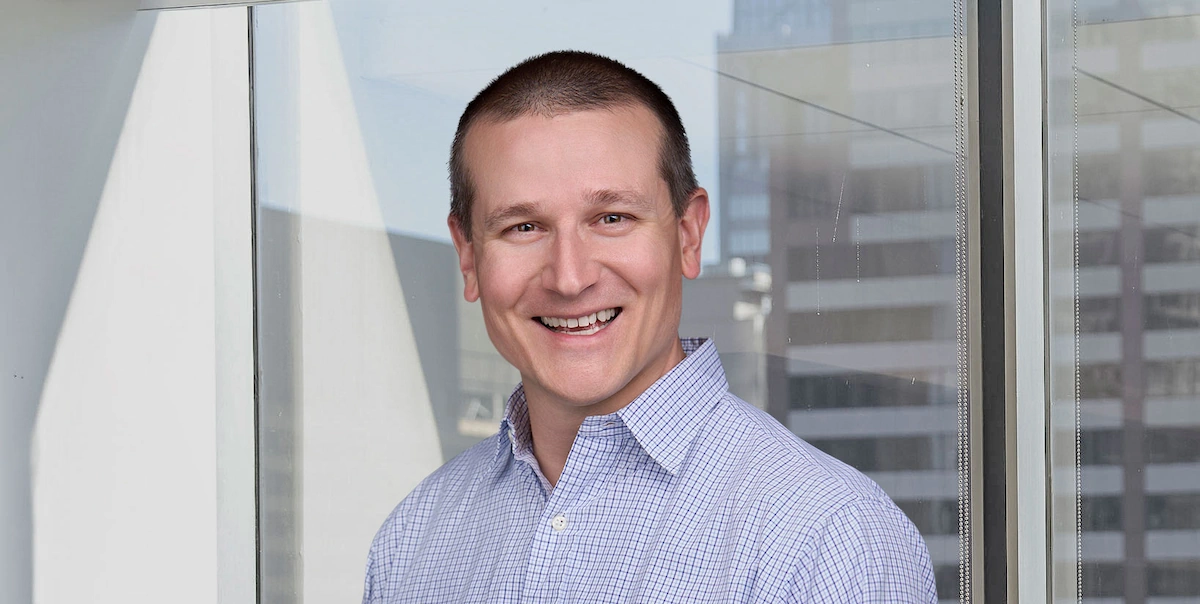When you’re ahead of your time, you often have to wait for the world to catch up. That was the case for Dan Fleischman, who received the American Society of Health System Pharmacists’ prestigious Innovation in Pharmacy Practice Award in 2022 for a research paper he co-authored back in 2015. But, true to form, he didn’t stop exploring and innovating in that interim.
As the director of our clinical services team, Dan helps perfect our insurtech tools with actuarially relevant interpretation of staggering volumes of health data. But data was the farthest thing from his mind when he pursued his doctorate in pharmacy; it was only while researching and writing up his paper that Dan developed a fascination for medical informatics. His new passion led him to IntelliScript, where he uses data to answer previously unanswerable questions
Winning an ASHP Literature Award is quite an honor in the world of pharmacy. What was your paper about?
It was titled, “Implementation of telehealth antimicrobial stewardship through partnership of an academic medical center and a community hospital.”
Can you translate that into English for those of us that don’t have “PharmD” on our business cards?
I suppose that sounds very clinical, but I bet you’re already familiar with the problem we set out to address: to improve patient care outcomes threatened by the nearly 3 million antibiotic-resistant bacterial infections contracted in the U.S. each year.
What made you think you could tackle such a huge problem?
By taking on the part of it that was in my power to address. Much of the antibiotic-resistant infection problem is rooted in the overuse of certain drugs. During the research phase of this study, I worked as an antimicrobial stewardship-certified clinical pharmacist at a 95-bed community hospital. Minimizing the development and spread of those infections was one of our goals.
Innovation rarely happens in isolation; expanding the work of others is how ideas progress. I realized our small hospital could launch our own antimicrobial stewardship program and get longer lasting results if we used telehealth technology to tap into the sophisticated program in at the University of Wisconsin-Madison’s teaching hospital.
The results were impressive in that we significantly reduced antibiotic use with no adverse impact on quality of care. In fact, we reduced the length of hospital stays. It was a fantastic win-win scenario. My co-authors and I submitted our paper for peer review in 2016 but were not accepted for publication until the pandemic put a spotlight on remote medicine topics—which was after I’d started working here at IntelliScript. Ironically, that research project was sort of my origin story, in terms of coming to work here.
One might think that writing an acclaimed paper would entrench you in your career. How did it lead to a career change?
My pharmacy school’s requisite statistics class was pretty basic. I didn’t even know what a database was until I started working on that research paper. But I found that I really enjoyed learning how to think about and use data. I realized that data is just useless info without interpretation—and that it becomes extremely powerful with expert analysis and modeling. I wanted to indulge my intellectual curiosity and make a difference, so I looked for a position with a data or health informatics component. That led me to IntelliScript.
Has the work proven to be as interesting as you’d hoped?
I go to conferences and run into people I know from school or work. When they ask what I’m doing, I tell them I have the coolest job in pharmacy.
Now that you’re a “data guy,” what’s the best part about your job?
The people and company culture are simply fantastic, so I’d be remiss not calling that out. In terms of the day-to-day job, it’s the sheer scale and quality of our datasets. When I wrote that article, I was dealing with hundreds of patients. I thought that was a big dataset. But at Milliman, we work with millions of lives. The statistical power in that is incredible.
In the past, I came up with good questions, but I couldn’t answer them. I just didn’t have the numbers to prove anything. Here, I can take a condition I trained on—that I’ve seen in practice and in the literature—and create really understandable metrics in terms of morbidity and mortality risks. Between the quantity of data at our disposal and the expertise we have on staff, I don’t think we’ve been faced with a question we couldn’t answer. We help our clients see farther and wider across the risk landscape, and make out the nuances of the terrain, too. We’re bringing clarity to the forest and the trees.
That synergy between clinical theory and actuarial science is a lot of fun.


